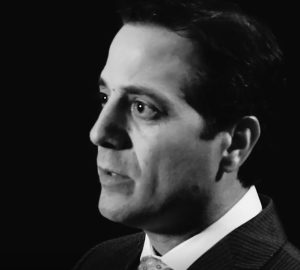The length of a wrongful death lawsuit can vary depending on various factors, such as the complexity of the case, the amount of evidence involved, the number of parties affected, and the court’s schedule. Generally, wrongful death lawsuits can take several months to several years to resolve. When a wrongful death lawsuit does conclude on the faster side, it’s usually because it has been resolved through settlement negotiations between the parties involved. However, if a settlement cannot be reached, your DC wrongful death lawyer may need to take the case to trial, which can take significantly longer.
Contact Us Today to Schedule
a Free Consultation

Negligence is when a party fails to uphold the level of care that a reasonable person would exhibit in similar circumstances, resulting in harm or injury to another person.
To establish negligence in a legal matter, certain criteria must be met. More specifically, the plaintiff must:
Ideally, when a wrongful death claim is initiated, the defendant or counsel for the defendant will be motivated to arrive at a fair and quick settlement. A reasonable settlement for a wrongful death case will depend on the specific circumstances leading up to the incident and the strength of the evidence presented. It is recommended to consult with a qualified and experienced wrongful death lawyer skilled at handling wrongful death claims, who can help you assess the value of your case and negotiate a fair settlement on your behalf.

Once the at-fault party, their insurance company, or their legal representative receives the correspondence outlining your claims, they will either be willing to negotiate or reject any negotiations. If it’s the latter, the case will not be settling at this point, and your attorney will file your lawsuit with the court.
Although most wrongful death cases do settle, there are several reasons some do not. These include:
Not just anyone can file a wrongful death lawsuit on behalf of the victim. In Washington, DC, the personal representative of the deceased person’s estate must file the claim. Specifically, the personal representative is the executor of the victim’s estate or will. If there is no named personal representative or the designee cannot fulfill their responsibilities, the court has the authority to appoint someone to assume that role.

The first step in filing a wrongful death lawsuit is to identify the party responsible for the victim’s death. Depending on the type of case, this could involve more than one party. For example:
To prove liability, compelling evidence is required for a successful outcome. The initial step involves collecting all the available evidence linked to the case, such as police reports, accident reports, medical records, photographs, witness statements, and any other pertinent documents or information.
Once the evidence has been collected, it is analyzed to determine the cause of the death and whether the at-fault parties identified were truly negligent or at fault. This will likely involve consulting with medical experts, accident reconstruction specialists, actuaries, risk managers, engineers, or other professionals who can provide insight into the circumstances surrounding the death.
Additionally, it may be necessary to conduct interviews with numerous witnesses or family members of the deceased to understand the events leading up to the death. Investigating evidence in a wrongful death case requires excellent resources and attention to detail.
Although criminal charges can be filed against the at-fault party, wrongful death claims are civil cases. To initiate the case in Washington, DC, a complaint is filed with the Civil Actions Branch of the Superior Court of the District of Columbia Civil Division. After filing, service of the complaint must be made on the at-fault party, and the litigation begins.
At the litigation stage of a wrongful death case, your attorney will prepare to present your case before a judge or jury. Discovery must be exchanged, depositions will be taken, documents will be requested, witnesses will testify, evidence will be introduced, court hearings may be continued and rescheduled, and experts will be consulted.
There are countless moving parts. Deadlines will be looming, a simultaneous criminal case may be happening. Negotiations might be on the table and a settlement may be reached after all. But if not, your attorney should be ready to continue to advocate for you. This involves being able to argue persuasively, present evidence effectively, and have your best interests at the core of it all.
Litigating a wrongful death case can be a complicated and emotional process. It is crucial that your attorney is always well-prepared, organized, and able to handle the challenges that arise.

For the deceased person’s pain and suffering between the time of the injury and death, there is a three-year deadline from the date of the injury. (This is called a “Survival of Rights of Action” claim.)
§ 12–101. Survival of rights of action: On the death of a person in whose favor or against whom a right of action has accrued for any cause before his death, the right of action, for all such cases, survives in favor of or against the legal representative of the deceased.
Consult with an experienced Washington, DC wrongful death attorney to determine the statute of limitations applicable to your case. Overlooking a critical deadline and failing to file within the statute of limitations can result in the case being dismissed, and the members of the victim’s family may lose the right to seek compensation for their loss. A skilled wrongful death attorney will keep track of the deadlines and guide the case for you while you can focus on your loss.
Typically, the beneficiaries who can receive compensation in a wrongful death suit include the surviving spouse and children. However, depending on the specific circumstances of the case, other family members may also be eligible. In the absence of a surviving spouse or partner, the deceased’s children, parents, or siblings may be considered next of kin and able to recover damages through the lawsuit.
According to the Code of the District of Columbia § 16–2703. Distribution of damages:

In general, the goal of wrongful death compensation is to provide financial support to the surviving family members of the deceased person, as well as to compensate for any losses or damages caused by the death.
Economic damages compensate for financial losses suffered by the surviving family members. These types of damages can include things like medical expenses incurred by the deceased person before their death, funeral expenses, burial costs, lost wages and benefits, and the loss of the deceased person’s future earning potential.
Unlike many other jurisdictions, Washington, DC has no “cap” on the damages a family can recover in a wrongful death action.
These are damages that compensate for non-financial losses suffered by the surviving family members. Non-economic damages can include things like emotional distress, loss of companionship, loss of guidance and mentorship, and pain and suffering. These damages are more subjective as they are nearly impossible to quantify or assign a monetary value to.
Unlike many other jurisdictions, in a Washington, DC wrongful death lawsuit, non-economic damages are NOT permitted as compensation for a victim’s beneficiaries.
In some cases, the court may award punitive damages to punish the at-fault party responsible for the wrongful death, and to deter others from engaging in similar conduct in the future.

An attorney-client relationship is built on confidence, honesty, and trust. It is important that you feel comfortable with your attorney and that they are communicative with you.
Our attorneys understand this is a difficult time for you as you try to balance mourning your loved one with seeking justice for their wrongful death. Furthermore, experiencing the sorrow of your loss while simultaneously trying to pursue compensation may bring intense feelings of discomfort. We are here to steer your case while protecting your rights and interests and navigating the complexities of the legal system during this turbulent time.
We will not charge you any upfront or out-of-pocket fees; our initial consultation is entirely complimentary. You will have the chance to speak with a compassionate Washington, DC lawyer who will answer your questions and walk you through the wrongful death lawsuit process. Contact Regan Zambri Long for a free consultation today.